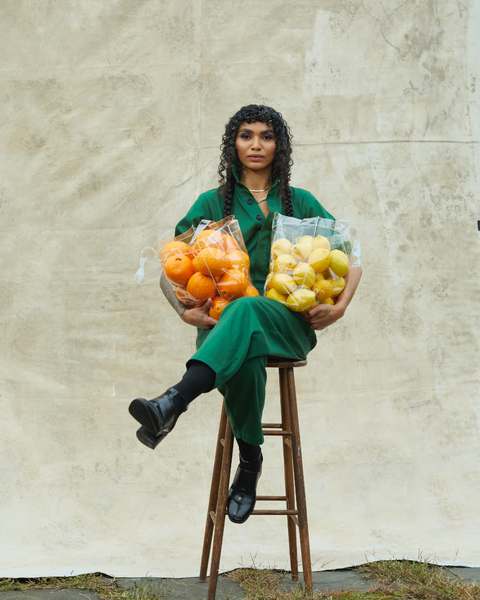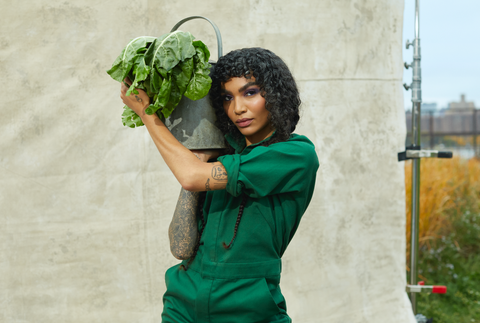You can't talk about crystals, veganism, palo santo, or herbs without giving allegiance and recognition to those who have built principles and rituals around those topics. Before it became a thriving
category in the beauty industry, wellness was and is rooted in food. And on the new VICE TV show, Counter Space, host, chef, and activist Sophia Roe is sharing a plethora of stories where food security, racial justice, and sustainable food systems all equate to wellness.
Counter Space is reinventing how we receive food via media. It involves storytelling and how unique restaurant owners around the world are infusing both tradition and the zeitgeist. There's also a food news component. For example, the show provides an in-depth look at Hong Kong protest food in one episode and explores how French grapes are being impacted by climate change in another. And of course, there's cooking, led by Roe. She takes inspiration from the episode's topic and breaks it down into something easily replicated at home. "Counter Space isn't just me walking up and saying, "Today we're going to make dumplings,'" says Roe. "It's me talking to people about famine, regenerative agriculture, supply chains, value chains, and more."

To that end, Roe notes that there is individualism and collectivism wellness. "Individualistic wellness is a commodification of wellness," she says. "It's about optimization, infrared, supplements. It's me, me, me, me, me, me, me." However, Roe is by no means condemning that form of wellness. She just believes that's not what wellness is all about. "Our ancestors and indigenous people invented wellness rituals and practices to make your body healthy so that you can take care of your community," she adds. "If you don't have that kind of collective purpose, then all those wellness modalities and products aren't going to work. You're going to come back from your retreat and you're going to feel shitty in six weeks because you're not living for anybody but yourself."
The people who star in each episode of Counter Space are focused on collectivism wellness, supporting their neighborhoods, industries, and restaurant diners, by putting forth sustainable practices, considering the abstract, and in some cases, creating a more inclusive environment.
And while beauty brands are working towards a more inclusive future, Roe not only wants to see more representation in every kind of capacity, every kind of colored person, and gender, she wants to see community and more collective purpose.

"Collective purpose is non-negotiable in any wellness protocol," she says. "We want the whole block to feel good, not just me. Once the whole block feels good, then that's equity. But what comes along with that is making sure we're asking people what they need and not just assuming. Let's look at who's responsible for making the supplements that we take. Why we even know about them and what culture they belong to. It's important to make sure that if you're a teacher or a leader in the wellness space, that you're giving thanks to those cultures every single day, and make the messaging around wellness a much bigger umbrella, like food, air, water, sunlight, movement, purpose, and community."
But at the end of the day, it all goes back to food. Because as Roe says so eloquently in each episode of Counter Space, 'Food is political. "When we're thinking about wellness or we're thinking about food or diet, we can't talk about those topics without talking about indigenous folks and where those protocols and where those principles and rituals and remedies come from," says Roe. "60% of the specialty foods in this country come from somewhere else. We've got to start being conscious consumers, not trying to vilify anybody, but understand what your consumption map looks like. If we know these things are happening and we know we have these patterns, let's fix them. Let's look at wellness differently."

